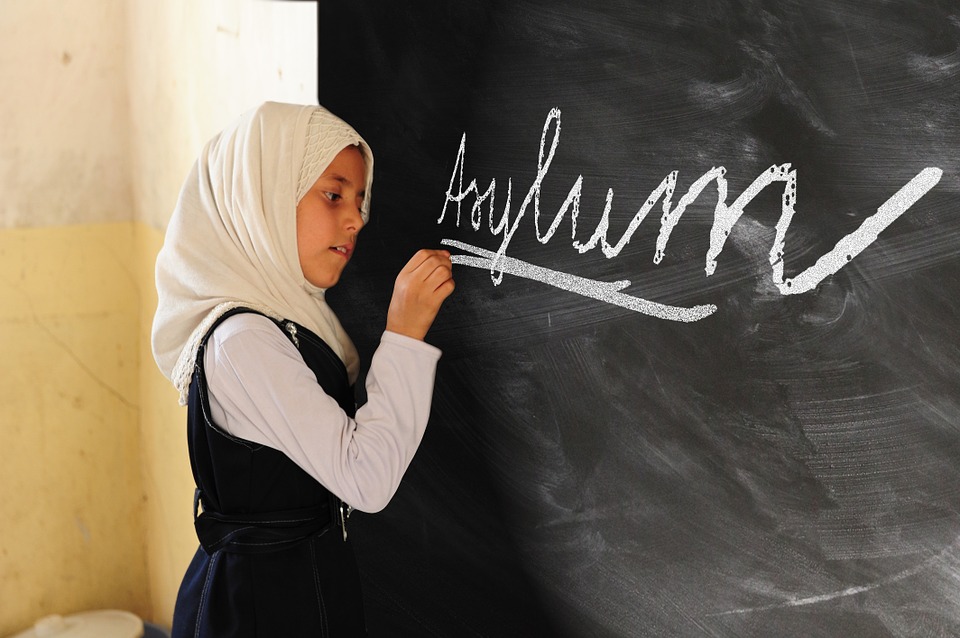The Reality of Indefinite Immigration Detention in Canada
Immigration lawyers and critics denounce the inhumane treatment of immigration detainees
On Tuesday March 8, 2016, the Toronto East Detention Centre announced the death of yet another immigration detainee. Less than a week later on March 14th, a detainee from Chile died suddenly at Maplehurst Correctional Complex in Milton.
Critics have long denounced the Canadian system of potential indefinite detention for foreigners (often in provincial jails that house criminals) who run afoul of immigration rules, especially after the tragic deaths of detainees in custody in recent years. Mexican migrant Lucia Vega Jimenez who was found hanging in a CBSA shower stall Vancouver in 2013 and Somali native Abdurahman Ibrahim Hassan, a mentally ill man who died in a Peterborough hospital in June 2015, are just two examples of individuals that have fallen victim to Canada’s flawed system for handling foreign detainees. The March 2016 death has now put Canada’s immigration detention system under the spotlight yet again.
Last June, a University of Toronto Study (‘Study’) found that almost one-third of foreigners detained in Canada are placed in facilities intended for criminals. The Study reports that such detentions violate international human rights law, which amounts to cruel, inhumane and degrading treatment. Some detainees do not have criminal records, yet are detained on the grounds that they are a flight risk or because their identity has not been established.
In 2014, Canada detained an alarming 8,519 people (60% of them in Ontario) who violated immigration law. The immigration detainees spent between two months and eight years imprisoned in maximum-security provincial jails. Without exception, they communicated incredible despair and anxiety due to their seemingly indefinite detention, their lack of legal rights, their conditions of confinement, and the lack of adequate mental health resources.
According to the 2012 United Nations High Commissioner for Refugees (UNHCR) Guidelines, detention of asylum seekers should be a measure of last resort, with liberty being the default position. Detention must be necessary, reasonable in all the circumstances and proportionate to a legitimate purpose. Indefinite detention is completely arbitrary. To guard against arbitrariness, maximum periods of detention should be set in national legislation. Without maximum periods, detention can become prolonged, and in some cases indefinite, including particularly for stateless asylum-seekers.
Canada’s approach to migrant detention often amounts to violation of international obligations to prevent arbitrary detention, cruel, inhuman, or degrading treatment, and discrimination. It fails to live up to the internationally binding commitments to ensure an effective remedy for conduct in violation of those norms. The Trudeau-led government has promised “change for our immigration system”: hopefully, this change will occur through legislative amendments that will identify and address the underlying reasons for lengthy and uncertain detentions in the immigration context.
Ms. Arghavan Gerami, Managing Director of Gerami Law PC has recently written a comprehensive article on this topic entitled “Challenging Prolonged and Indefinite Immigration Detention: Necessary Amendments to the Immigration and Refugee Protection Act” to be published in the next issue of the Journal of Parliamentary and Political Law. Her paper highlights the reality of prolonged, indefinite and arbitrary immigration detention in Canada, despite the international and constitutional safeguards that are in place to protect the rights of individuals and children in such circumstances. It also discusses the interaction between the Immigration and Refugee Protection Act and the Canadian Charter of Rights and Freedoms, while examining some the most recent jurisprudence in this area (focusing on the Ahmed1 2015 trilogy before the Federal Court as well as the Ontario Court of Appeal decision in Chaudhary v. Canada (Public Safety and Emergency Preparedness).2 Ms. Gerami concludes her paper by arguing that legislative reform is necessary in this area in order to prevent arbitrary and indefinite immigration detentions in Canada.
1Ali v. Canada (Citizenship and Immigration), 2015 FC 1012[Ahmed III]; Ahmed v. Canada (Citizenship and Immigration), 2015 FC 876[Ahmed II]; Ahmed v. Canada (Citizenship and Immigration), 2015 FC 792 [Ahmed I].
22015 ONCA 251[Chaudhary].
Foreign Students Flocking to Canada for University
How a Canadian Immigration Lawyer Can Help You Attain a World-Class Education
Studying at a post-secondary institution is an exciting time in every Canadian’s life. Applying to the university or college of your choice and anxiously waiting for the acceptance letter to arrive in the mail, while making preparations to live away from home; these opportunities are also available to students living abroad that would like to study in Canada. Combining a high quality education, a safe environment to live in, and one of most friendly immigration systems for international students, it’s no wonder that Canada serves as a top destination for foreign students. Getting in touch with a Canadian immigration lawyer is a great first step in seeking education in Canada.
Eligibility
A Canadian immigration lawyer can help you ensure that you are eligible to study in Canada. You will need proof for the following: a letter of acceptance to a Canadian post-secondary institution; that you can pay for tuition, living expenses, and return trips from Canada; that you have no criminal record and pose no risk to Canadian security; and that you’re in good health and intend to leave Canada when your authorized stay expires.
Working
Earning an education is the priority, though it’s also important to gain eligibility to work both during school and after graduation. Prospective students, as governed by Citizenship and Immigration Canada, can apply for work permits outside of their study permits to earn a living while in Canada. Those students that are required to complete a work placement to graduate must first obtain a work permit before they can begin.
Extension, Renewal, or Changing Programs
In Canada, immigration officials recommend that students applying for an extension or renewal of their study permit do so 30 days before the current permit’s expiry. This is so you can remain in Canada under the conditions of your current permit while you await a decision. A Canadian immigration lawyer can help you compile the necessary documentation and complete applications to change conditions, levels of study, programs, or otherwise extend your stay in Canada.
A Canadian immigration Lawyer is a fantastic resource to provide legal advice and support for anyone who wishes to study in Canada. Navigating through all of the paperwork and documentation is challenging, especially without knowledge and experience relating to Canadian immigration law.
Quebec Skilled Worker Applications Now Being Accepted
A Canadian Immigration Lawyer Provides an Overview of this Provincial Immigration Program
After the program launch—originally scheduled for January 2016—was extended due to several issues with the new application system, the Quebec government officially began accepting online applications under its skilled worker program on February 16, 2016. Applicants were given until January 25, 2016 to create online user accounts, after which they were able to complete an online application for a Quebec Certificat de Selection (CSQ) until February 15, 2016. As of February 16, 2016, these applications, along with the required fees, are being accepted. The application reception period ends on March 31, 2016, and Canada’s immigration lawyers expect that the quota of 2800 applications will fill quickly.
The province of Quebec has a special agreement with the federal government, and therefore administers its own Canadian immigration programs, and has its own rules for choosing immigrants who will adapt well to living there. The goal of the skilled worker program is to select candidates for which successful economic settlement is highly likely. Immigration lawyers in Canada are quick to point out that this program is the only one in Canada where applicants can predict their chances of admission based on their qualifications. The program’s point system evaluates candidates based on a number of criteria including their area of training, level of education, level of experience, age, language, and the qualifications of their partner.
All those wishing to settle permanently in Quebec must:
1. Apply to the Quebec government for a CSQ;
2. Apply to Citizenship and Immigration Canada (CIC) for permanent residency. At this point, a medical exam and police check will be administered.
There are more than 75 eligible occupations and areas of training that enable applicants to qualify for a CSQ without a job offer, but Canada’s immigration lawyers note that applicants in management and financial services, engineering, information technology, and health care currently have the best chances of success. It should also be noted that applicants with a valid job offer, previous work experience in Quebec, or who have completed a valid period of study in Quebec may also qualify under the Quebec Experience Class and would therefore not be subject to the skilled worker program quota.
In Canada, Quebec is a popular immigration destination, and immigration lawyers across Canada agree that the province’s program offers distinct advantages over the federal Express Entry system and other provincial immigration programs. If you require assistance with the submission of your skilled worker application, contact a Canadian immigration lawyer today.
Permanent Resident Lawyer on Express Entry Trends
Citizenship and Immigration Canada System Trending towards Greater Opportunities
A little over a year ago, Citizenship and Immigration Canada introduced a new Express Entry system for fast-tracking the permanent residency applications of skilled immigrants using a points system to measure candidacy. While not a new immigration program in and of itself, it was instead a new method of applying to three existing programs: the Federal Skilled Worker Program, Federal Skilled Trades Program, and Canadian Experience Class Program. On January 31st, 2015, 779 Express Entry candidates were issued an invitation to apply for permanent residency in the first draw. Each candidate invited had a score of 886 points or more (out of a possible 1,200 based on the existence of an LMIA-approved job offer and other employability criteria) and went on to submit an electronic application that would be processed in six months or less. In fact, some applicants had their applications processed in as little as three months.
For those unsure of if they are eligible for the program, a permanent resident lawyer can assist them with the process from start to finish to ensure that they meet the criteria as best as possible. However, as time goes on, the program has seen more applicants invited to apply, and the minimum score in the draw decreased. The decreased scores could be a result of simply casting a wider net, it could also stem from an acknowledgement of the difficulty in achieving certain criteria from outside of Canada regardless of potential eligibility. Citizenship and Immigration Canada’s Comprehensive Ranking System awards 600 points to any candidate with either an existing LMIA-approved job offer, or a provincial nomination, both of which may be difficult to obtain from overseas, and may at first have been a significant barrier to being invited.
However, as a permanent resident lawyer may note, the latest figures from Express Entry suggest that there are more opportunities for new Canadians to thrive. By the time of the fifth draw, on March 20th of last year, the number of applicants invited had increased to an impressive 1,620, with the lowest score being 481—well below the 600-point level previously thought to be the benchmark for candidacy. While both numbers have fluctuated since, the first draw of 2016—24th over all—saw 1,463 people invited to apply, with a minimum score of 461. This marks the fifteenth consecutive draw with a minimum score lower than 600 points, and the sixteenth consecutive draw with over 1,000 invitations issued. While there is clearly still a need for employable skills and other criteria to be met, it appears that Citizenship and Immigration Canada is recognizing the need to making it easier for immigrants to gain residency, perhaps keeping in mind the positive economic impact that increased immigration of skilled individuals has on communities.
If you are interested in becoming a permanent resident in Canada through one of its economic immigration programs, speak to a permanent resident lawyer to discuss your candidacy for Express Entry.
Resettlement of Syrian Refugees Highlights Troubling Inequality
A Refugee Law Office Argues for Equal Treatment of All Refugees
In recent months, thousands of Syrian refugees have been welcomed to Canada thanks to the federal government’s resettlement initiative. This highly-publicized program, the result of a Liberal campaign promise, has seen already seen almost 15,000 refugees relocated to communities across Canada, and is receiving tremendous support from Canadians country-wide. While lawyers at refugee law offices across the country certainly admire the government’s commitment to these Syrian refugees, they are quick to point out that this initiative has highlighted a troubling inequality among different groups of refugees.
Syrian refugees who have come to Canada under the federal government’s refugee program were not only awarded full health coverage under the Interim Federal Health program, they were not required to repay the cost of their flight to Canada or their initial health exams. As a point of comparison, all other refugees are responsible for the repayment of these costs, with interest. These policies are a result of cuts imposed by the Conservative government years ago, and while Citizenship and Immigration Canada (CIC) has recently pledged to reverse these cuts, this is not yet the case.
While lawyers at refugee law offices country-wide are applauding the government for their efforts with regards to the Syrian crisis, they also emphasize the importance of providing similar levels of aid to refugees from other countries. Unfortunately, current policies often mean that these refugees are thousands of dollars in debt before they even arrive in Canada. Not only does this destroy their credit rating, it makes it much more difficult for them to integrate economically and become self-sufficient. If a refugee was sponsored privately, their sponsors are often saddled with the responsibility of paying for healthcare and other expenses.
In recent months, refugee law offices have received an increasing amount of questions from refugees. Refugees from other countries, including Somalia, Eritrea, Afghanistan and Sudan may also be questioning the government’s priorities as a result of recent developments.
Citizenship and Immigration Canada has stated that they are considering waiving transportation loans for all refugees, but this has not definitively been decided. Refugee lawyers in Canada believe it is imperative that all refugees arriving in Canada be given due consideration for their vulnerabilities. Each of them deserves the warm welcome and fair treatment received by Syrian refugees in recent months.





